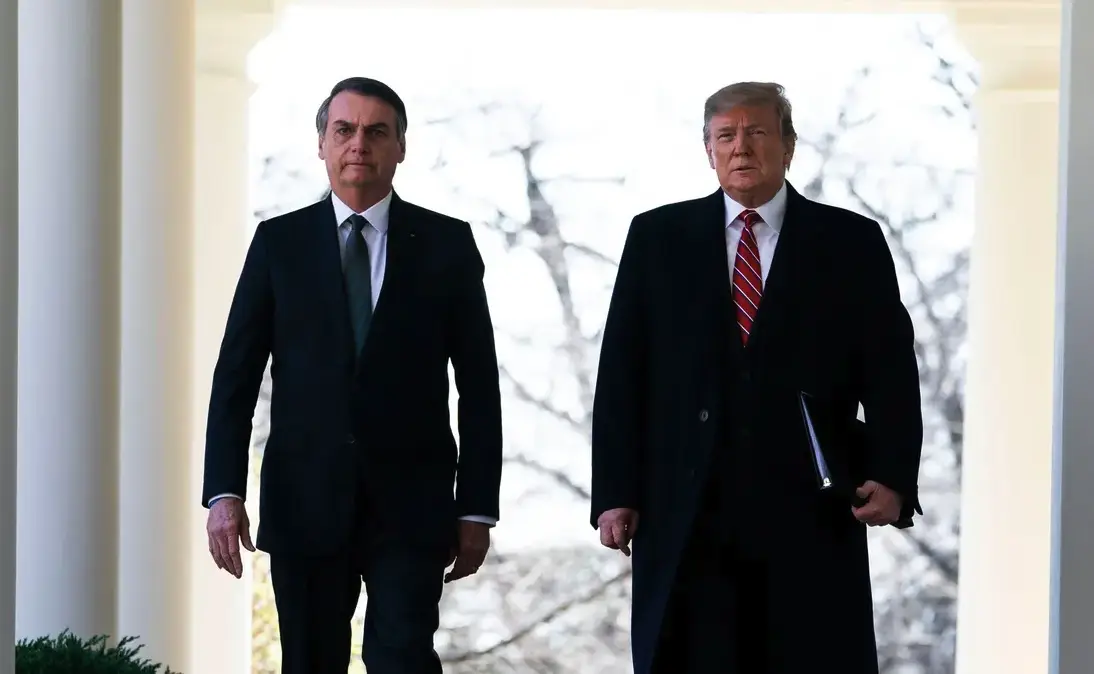Hace un año, Joe Biden era el presidente de los Estados Unidos y enfrentaba altos niveles de desaprobación por parte de la mayoría de la sociedad. Con un 38 % de aprobación entre los votantes, su desastrosa actuación en el debate presidencial de junio fue el punto de quiebre para el Partido Demócrata, que forzó su retiro en plena campaña presidencial.
Kamala Harris lanzó su candidatura presidencial con el respaldo del presidente apenas un mes después de asumir el liderazgo de la campaña, convirtiéndose en la candidata con menos tiempo en la historia de EE. UU. para conquistar al electorado —poco más de cien días de campaña. Diversos analistas señalaron que el carácter abrupto de la decisión, que la posicionó casi como una segunda opción o un reemplazo de emergencia, hacía razonable suponer que no tendría posibilidades reales de victoria frente a los enormes desafíos que enfrentaba.
Hoy, al reflexionar sobre su derrota, es posible considerar que este escenario podría haberse evitado. Durante tres años, periodistas y analistas alertaron sobre la edad avanzada de Joe Biden y sus bajos niveles de aprobación. Si el partido y el propio Biden hubieran acogido esas advertencias, la izquierda estadounidense podría haber organizado unas primarias más sólidas, quizás evitando así el regreso de Donald Trump.
Actualmente, Brasil vive un escenario político con paralelismos importantes respecto a las elecciones estadounidenses de 2024, marcado por la caída de popularidad y la figura de un líder ampliamente conocido: Lula. Con más de 40 años de trayectoria política, Lula dejó un legado significativo, especialmente a través de políticas como el programa Bolsa Familia, con impactos duraderos en áreas como asistencia social, salud, educación y vivienda. Su regreso a la presidencia, tras haber sido encarcelado y luego de la derrota de su partido en 2018, refuerza su relevancia como la principal figura política y electoral del país en la actualidad.
Antes del inicio formal de las campañas presidenciales de 2026, es fundamental que la izquierda brasileña preste atención tanto al contexto político nacional como a las tendencias internacionales y a las nuevas demandas del electorado. Este es un momento estratégico para acumular masa crítica y extraer lecciones de las derrotas recientes sufridas por la izquierda en países como Estados Unidos, Argentina e Italia. La candidatura de Lula en 2026 estará marcada por desafíos distintos a los de sus victorias anteriores, lo que exigirá nuevas estrategias y una lectura refinada del contexto. Es probable que el actual presidente —que ganó las elecciones de 2022 por apenas dos puntos porcentuales en la contienda más reñida de la historia democrática del país— se enfrente en 2026 a su momento de mayor vulnerabilidad frente a una posible derrota en lo que va del siglo.
Según datos de la encuesta de PoderData, en marzo la desaprobación del gobierno de Lula alcanzó el 53 % y un 44 % de los votantes considera que su gobierno es peor que el de Bolsonaro. La confianza en el presidente también ha caído, y casi un 60 % de los votantes afirma no confiar en él. Además, los electores desaprueban la actuación del gobierno en todas las áreas de la administración federal. Particularmente, existe un amplio descontento con el combate a la inflación: solo un 17 % evalúa la economía como buena o muy buena, mientras que un 23 % la considera regular. Estos datos son muy similares a los niveles de aprobación que tenía la gestión económica de Biden un año antes de las elecciones en EE. UU.
Por otro lado, el gobierno de Lula ha prometido que la inflación bajará antes de fin de año. No obstante, es necesario considerar si esta expectativa oficial se traducirá en una percepción positiva por parte de la población. Sin duda, la derecha explotará este tema durante toda la campaña, al igual que lo hará con la difusión de desinformaciones, como la supuesta creación de un impuesto sobre el uso del sistema de transferencias Pix.
La derecha, de hecho, recurre sistemáticamente a las fake news como arma política para avanzar con su agenda, incluso en lo referente al estado de salud del presidente. La ministra de Relaciones Institucionales, presidenta del PT y diputada federal Gleisi Hoffmann, argumentó recientemente que “la mayor fake news de todos los tiempos” sería una de las principales razones de la caída de popularidad del gobierno. No hay indicios de que esta ola de desinformación se detenga en el próximo año; al contrario, durante las elecciones estadounidenses se intensificó notablemente. Por ello, aunque la salud del presidente Lula se mantenga en excelente estado, este aspecto será uno de los flancos abiertos que serán explotados en la campaña.
El momento para evitar que todas estas vulnerabilidades del actual presidente desemboquen en una derrota en las urnas ya ha comenzado. Si se toma como ejemplo la derrota de Joe Biden, una posibilidad en el horizonte sería la de seleccionar a tiempo a una figura alternativa y apoyar una renovación política desde los inicios del proceso electoral. Debatir la renovación de la izquierda resulta crucial para enfrentar a la extrema derecha. Es una lección que las derrotas recientes de la izquierda internacional pueden enseñar a Brasil. El pueblo brasileño —y en particular la coalición democrática que respalda la agenda política del gobierno de Lula— merece participar activamente en la decisión sobre quién puede dar continuidad a ese proyecto en un nuevo mandato presidencial.
A pesar de no haber definido aún una figura sucesora evidente, la izquierda brasileña necesita pensar a largo plazo, en las próximas cuatro décadas de democracia en el país. Existen nombres con potencial para liderar Brasil hacia el futuro. Si se consideran los éxitos electorales recientes, así como las posibles alianzas para conformar una fórmula presidencial, surgen en el horizonte figuras como Marina Silva (REDE-AC), João Campos (PSB-PE), Geraldo Alckmin (PSB), Simone Tebet (MDB-MS), Eduardo Paes (PSD-RJ) e incluso el ministro del Supremo Tribunal Federal, Flávio Dino. Una nueva generación de líderes de izquierda —incluyendo nombres provenientes de la centroizquierda— comienza a emerger en el escenario político. Uno de los principales aciertos de las elecciones de 2022 fue precisamente la conformación de una amplia coalición en defensa de la democracia. Para evitar repetir los errores de 2018, es esencial que el PT considere alianzas más amplias y no se repliegue sobre sus propias idiosincrasias.
El presidente Lula ha declarado que aún está considerando si se postulará a la reelección. Sin embargo, esta decisión no concierne únicamente a su voluntad personal. Debatirla implica una elección profunda sobre el futuro del país. Las lecciones del caso Biden y las propias memorias de 2018 en Brasil deben servirnos como advertencia sobre el futuro que deseamos construir, tanto a corto como a largo plazo. El actual presidente Donald Trump —con una agenda abiertamente antidemocrática y autoritaria en curso— sigue siendo idolatrado por sectores de la derecha y la extrema derecha brasileña. No hay escenario más perjudicial para la agenda de equidad económica, justicia social, derechos humanos y fortalecimiento de la democracia que el que podría surgir del regreso de la extrema derecha al poder en Brasil.














